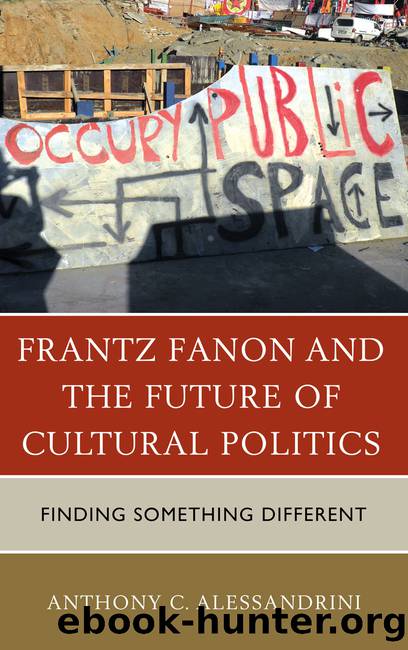Frantz Fanon and the Future of Cultural Politics by Alessandrini Anthony C.;

Author:Alessandrini, Anthony C.;
Language: eng
Format: epub
ISBN: 1729308
Publisher: Lexington Books/Fortress Academic
There are, it should be noted, potential risks in a contemporary strategy that would attempt to reappropriate the legacy of the struggle against anti-fascism in the same direct way as Césaire does here. After all, similar sorts of direct parallels to Hitler have been used repeatedly over the past few decades by right-wing forces in the United States, whether for the purpose of seeking legitimation for the illegal invasion and occupation of Iraq (through the âSaddam = Hitlerâ equation, for example) or to stir up opposition to health care reform (through the recent fashion for portraying President Barack Obama as Hitler). In this context, it is worth recalling Gilroyâs youthful semiotic confusion when faced with ultranationalist fascist groups in Britain, âthe teddy boys who terrified me as a child and their successors, the skinheads who hounded me through my teenage yearsâ; he recalls asking his father: âWerenât fascists the same as Nazis? . . . How could they be English people? How could English people be Fascists? Was their exciting lightning-flash the same sort of thing as the hated but fascinating swastika?â33
We would do well to bring some of this spirit of childâs-eye inquiry to the horrifying phenomena of digitally altered photographs that merge the faces of Obama and Hitler, or the sight of Obamaâs smiling face photoshopped over a figure in full Nazi regalia, images that have proliferated alarmingly since 2008. In spite of these frightening precedents, Gilroyâs strategy in Against Race works to keep alive Césaireâs outraged call to make the continuing presence of fascism part of our history of the present (and future). We might do the same sort of work when faced with the contemporary link between fascism and Islamophobia in Europe and North America, as well as the presence of white supremacist and other fascist groups as part of the rising tide of anti-immigrant rhetoric (and violence) in the United States.34 The full complexity with which these issues need to be addressed, to give just one possible example, has been highlighted in the political attacks on ethnic studies programs in Arizona, a state that is home to some of the most draconian anti-immigrant laws in the United States. For example, in 2011, Arizonaâs superintendent of public instruction, John Huppenthal, compared the Tucson Unified School District's Ethnic Studies/Mexican American Studies Program to the Hitler Nazi Jugend paramilitary organization, while at the same time endorsing Arizona State Senator Russell Pearce, who has openly associated with neo-Nazi and white supremacist organizations.35
Given this politically motivated reengagement with the fascist past, it is striking that Gilroy ends Against Race by taking a step back from the pastâor, to put it more accurately, as he does in the bookâs final sentence, a step towards âbring[ing] even more powerful visions of planetary humanity from the future into the present and reconnect[ing] them with democratic and cosmopolitan traditions that have been all but expunged from todayâs black political imaginary.â36 Of course, there is no real abandonment of the past here, but rather a
Download
This site does not store any files on its server. We only index and link to content provided by other sites. Please contact the content providers to delete copyright contents if any and email us, we'll remove relevant links or contents immediately.
The Power of Myth by Joseph Campbell & Bill Moyers(697)
Four Shakespearean Period Pieces by Margreta de Grazia(696)
A Social History of the Media by Peter Burke & Peter Burke(645)
Inseparable by Emma Donoghue(616)
The Complete Correspondence 1928-1940 by Theodor W. Adorno & Walter Benjamin(516)
Bodies from the Library 3 by Tony Medawar(489)
The Spike by Mark Humphries;(478)
A Theory of Narrative Drawing by Simon Grennan(471)
Culture by Terry Eagleton(470)
World Philology by(458)
Ideology by Eagleton Terry;(456)
Farnsworth's Classical English Rhetoric by Ward Farnsworth(448)
A Reader’s Companion to J. D. Salinger’s The Catcher in the Rye by Peter Beidler(434)
Adam Smith by Jonathan Conlin(427)
Comic Genius: Portraits of Funny People by(415)
Game of Thrones and Philosophy by William Irwin(405)
Monkey King by Wu Cheng'en(405)
High Albania by M. Edith Durham(401)
Early Departures by Justin A. Reynolds(386)
